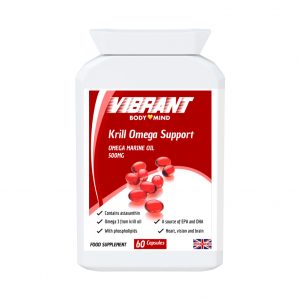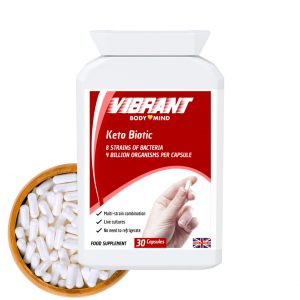The effects of omega 3 and 6 fatty acids in fish oil for acne are very promising. Learn more if you want to get an answer to your question, “Does fish oil help with acne?”
Omega 3 in fish oil is very effective for acne
Does fish oil help acne? The omega 3 contained in fish oil is considered to be a panacea for your skin. The fish fatty acids not only ensure that your skin remains soft and supple, but also that the cell membranes are strengthened. This counteracts the process of skin aging.
In addition, the omega 3 contained in fish oil, among other things, helps your skin to fight impurities. This means that eczema, psoriasis, active rosacea and pimples are counteracted. Would you like to reap the benefits of Omega 3? Fish oil helps your skin a lot!
NEXT ARTICLE FOR YOU: Krill Oil: Benefits, Uses, Details
Fish oil with omega 3 is good for your skin
So does fish oil help acne? We all know that what we eat has a huge impact on how our skin looks. Do you eat unhealthy foods more often? Then you are more likely to suffer from skin problems.
Of course, hereditary factors also play a role, but the influence of diet should not be underestimated. In today’s “health” foods we find many products that contain (too) much omega 6. And too much omega 6 can cause skin inflammation. Worse still, excess omega-6s are often present in products that taste so good, like chips, cookies, fried foods, and sauces.
Why does fish oil help acne? Fish oil is rich in omega-3 fatty acids, and omega-3 fatty acids are good for your skin. This healthy fat invigorates the skin and helps fight blemishes. For example, omega 3 helps against acne, and a lack of omega 3 even promotes acne. Ideally, omega-3 and omega-6 fatty acids should be in a balanced ratio! Unfortunately, this is not the case for many people.
Do you have problems with your skin? Then it could very well be that the lack of omega-3 fatty acids is the cause of acne or other blemishes. That is why it is advisable to get the right amount of omega-3 fatty acids in your body.
How does Omega 3 (fish oil) affect your skin?
Does fish oil help acne? The omega 3 found in fish oil affects your skin in a number of ways. It is not for nothing that Omega 3 is used in many skin care products. Does fish oil make your skin firm? We list all the benefits of Omega 3 for your skin:
- Makes the horny layer softer
- Has an anti-aging effect
- Has a detoxifying effect
- Promotes blood circulation in the skin
- Helps against cellulite
- Ensures supple, moisturized and healthy skin
- Omega 3 combats stress and anxiety
How omega-3 fatty acids in fish oil improve acne
Does fish oil help acne? Here’s what science says. Taking omega-3 fatty acids and gamma-linolenic acid (omega-6 fatty acids) can reduce pimples. This is the conclusion of a study in which adults took omega-3 fatty acids or gamma-linolenic acid daily for ten weeks. Acne improved in both groups, but not in a control group (a group of adults not taking supplement pills).
The study involved 45 adults with mild to moderate acne. Before and after the study, dermatologists counted the number of areas of inflammation and non-inflammation on the participants’ faces. The amount of pimples had decreased in both groups but not in the control group.
NEXT ARTICLE FOR YOU: Collagen for Hair: Growth, Thickness and More
To learn if fish oil helps acne, scientists looked at several factors. Participants were allowed to indicate whether they felt their acne had improved. It also showed that only the participants who used gamma-linolenic acid or omega-3 fatty acid capsules saw an improvement in their acne. All results were comparable for the gamma-linolenic acid and omega-3 fatty acid groups.
Cell-level analysis of acne inflammation showed that both omega fatty acids inhibit an important factor (IL-8) in the inflammatory process.
Gamma-linolenic acid is an omega-6 fatty acid that comes from borage oil. One group took 1,000 mg of borage oil, which contains 200 mg of gamma-linolenic acid. The omega-3 fatty acid group took a capsule containing 500 mg of eicosapentaenoic acid and 500 mg of docosahexaenoic acid. Both groups took two capsules daily.
Acne can be caused by lack of omega-3 fatty acids: Science
Does fish oil help acne? Here’s what another study says. German researchers reported at the spring symposium of the European Academy for Dermatology and Venereology (EADV), in addition to medication, the right diet could also help with treatment.
A team led by dermatologist Dr. Anne Gürtler from the Ludwig Maximilians University in Munich (LMU) has now discovered a possible connection between acne and a lack of omega-3 fatty acids. These fatty acids are found in foods like legumes, seaweed, nuts, seeds, and fish like wild salmon and sardines.
The authors of the study determined the nutritional parameters in the blood of 100 subjects who suffered from acne: in 94 percent of them the level of omega-3 fatty acids was below the recommended value.
NEXT ARTICLE FOR YOU: Can Vitamin D Deficiency Cause Hair Loss?
The low values were accompanied by an increased IGF-1 level. This growth factor has long been considered important in the development of acne. The researchers also found that those who self-reported eating legumes regularly and avoiding sunflower oil had higher levels of omega-3 fatty acids.
“Nutrition plays a central role in the prevention, onset and progression of many diseases, including dermatological diseases such as acne vulgaris,” Gürtler said in a statement.
Taking fish oil for acne
Does fish oil help acne? How can you prevent an omega-3 deficiency and thus acne or other skin problems? Since omega 3 is good for the skin, it is wise to also eat products that contain (a lot of) omega 3, such as: e.g. fish oil.
For your skin, the omega 3 contained in fish oil is a good alternative to fatty fish. Omega 3 is mainly found in oily fish such as salmon, mackerel, herring, tuna, anchovies and sardines.
However, most people fail to eat enough fatty fish containing omega-3 fatty acids. Fish oil also contains the omega-3 fatty acids that your skin so desperately needs.
What other supplements can reduce acne?
An anti-inflammatory diet high in omega-3 fatty acids, such as those found in avocado, salmon, nuts, and flaxseed oil, and low in dairy products may alleviate acne. In addition, the following supplements can help:
- Zinc (50 mg daily) has provided comparable results in studies of tetracycline therapy. Zinc is therefore the nutrient of choice to try for acne.
- Omega-3 fatty acids (2–3 g) reduce the skin’s tendency to become inflamed.
- Gamma-linolenic acid (1 g) can improve inflammation by altering the fatty acid profile when a deficiency has been demonstrated by fatty acid analysis.
- Selenium (200 μg) has an anti-inflammatory effect.
- Vitamin E (800 IU) and vitamin B6 (50 mg daily for increased premenstrual acne) can be helpful. If there is a response to these nutrients, it is sufficient to take them premenstrually for about 7-10 days.
Omega-3 fatty acids, eicosapentaenoic acid (EPA) and docosahexaenoic acid (DHA) have a beneficial effect for acne. They are found in fatty fish or fish oil capsules. The same applies to a healthy bacterial flora in the intestine, which can be promoted by a high-fiber diet and probiotics.
NEXT ARTICLE FOR YOU: Choosing Omega 3 6 9 Supplements
Omega 3 (fish oil) for your skin: Your experiences
Many people choose omega-3 supplements for their skin, such as Omega 3-6-9 capsules, because they have had good experiences with them. What we often hear is that daily intake of omega-3 fatty acids (e.g. fish oil) prevents dry skin and inflammation.
Do you take omega-3 supplements like fish oil? And would you like to tell us about your experiences with your skin? We’d love to hear about it!
FAQ
Can I apply omega 3 (fish oil) to the skin?
It is a fact that the right dose of Omega 3 has a proven positive effect on the cells in your body. It ensures smooth, flexible cell walls. There are several omega-3 skin care products that you can apply to your skin, but applying fish oil to your skin is not a good idea. It will stink. But there’s a better solution: fish oil cares for the skin from the inside out.
Is there scientific evidence supporting the use of fish oil for acne?
Yes, several studies suggest that the omega-3 fatty acids found in fish oil may have anti-inflammatory properties, potentially benefiting individuals with acne. Research indicates that incorporating fish oil into one’s diet might contribute to improved skin health.
How does fish oil impact acne?
Fish oil contains omega-3 fatty acids, such as EPA and DHA, which have anti-inflammatory effects. Inflammation plays a role in acne development, and these fatty acids may help mitigate inflammation, leading to potential improvements in acne severity.
What dosage of fish oil is recommended for acne?
Dosage recommendations can vary, but commonly suggested amounts range from 250 to 1,000 milligrams of combined EPA and DHA per day. It’s advisable to consult with a healthcare professional to determine the appropriate dosage based on individual health needs.
Can fish oil supplements replace traditional acne treatments?
Fish oil supplements are not a substitute for conventional acne treatments prescribed by dermatologists. They may complement other treatments and contribute to overall skin health, but those with acne should consult a healthcare professional for personalized advice.
Are there any side effects of taking fish oil for acne?
In general, fish oil is considered safe for most people when taken at recommended doses. However, some individuals may experience mild side effects, such as digestive issues or a fishy aftertaste. It’s crucial to follow recommended dosage guidelines and consult a healthcare provider if concerns arise.
Can eating fish provide the same benefits as taking fish oil supplements?
Yes, incorporating fatty fish into the diet, such as salmon, mackerel, or sardines, can provide omega-3 fatty acids. Consuming fish as part of a balanced diet not only offers potential benefits for skin health but also contributes to overall nutritional well-being.
How long does it take to see results when using fish oil for acne?
Results can vary among individuals. While some may notice improvements in a relatively short time, others may require several weeks to see noticeable changes. Consistent use and patience are essential.
Are there any contraindications or anyone who should avoid fish oil supplements?
Individuals with allergies to fish, those taking blood-thinning medications, or those with certain medical conditions should consult a healthcare professional before taking fish oil supplements. Pregnant or nursing individuals should also seek guidance.
Can fish oil supplements worsen acne in some cases?
While fish oil is generally well-tolerated, individual responses can vary. In rare cases, some individuals might experience an exacerbation of acne or skin issues. It’s advisable to start with a lower dosage and monitor for any adverse reactions.
What other lifestyle factors can contribute to improved skin health besides fish oil?
Maintaining a balanced diet, staying hydrated, practicing good skincare habits, managing stress, and avoiding excessive consumption of processed foods and dairy may also contribute to improved skin health. A holistic approach to skincare is often beneficial.







[…] RELATED: Does Fish Oil Help Acne? […]